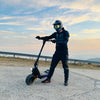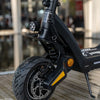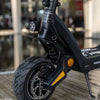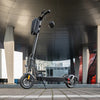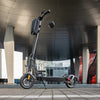Do electric scooters work in cold weather? Everything you need to know for winter
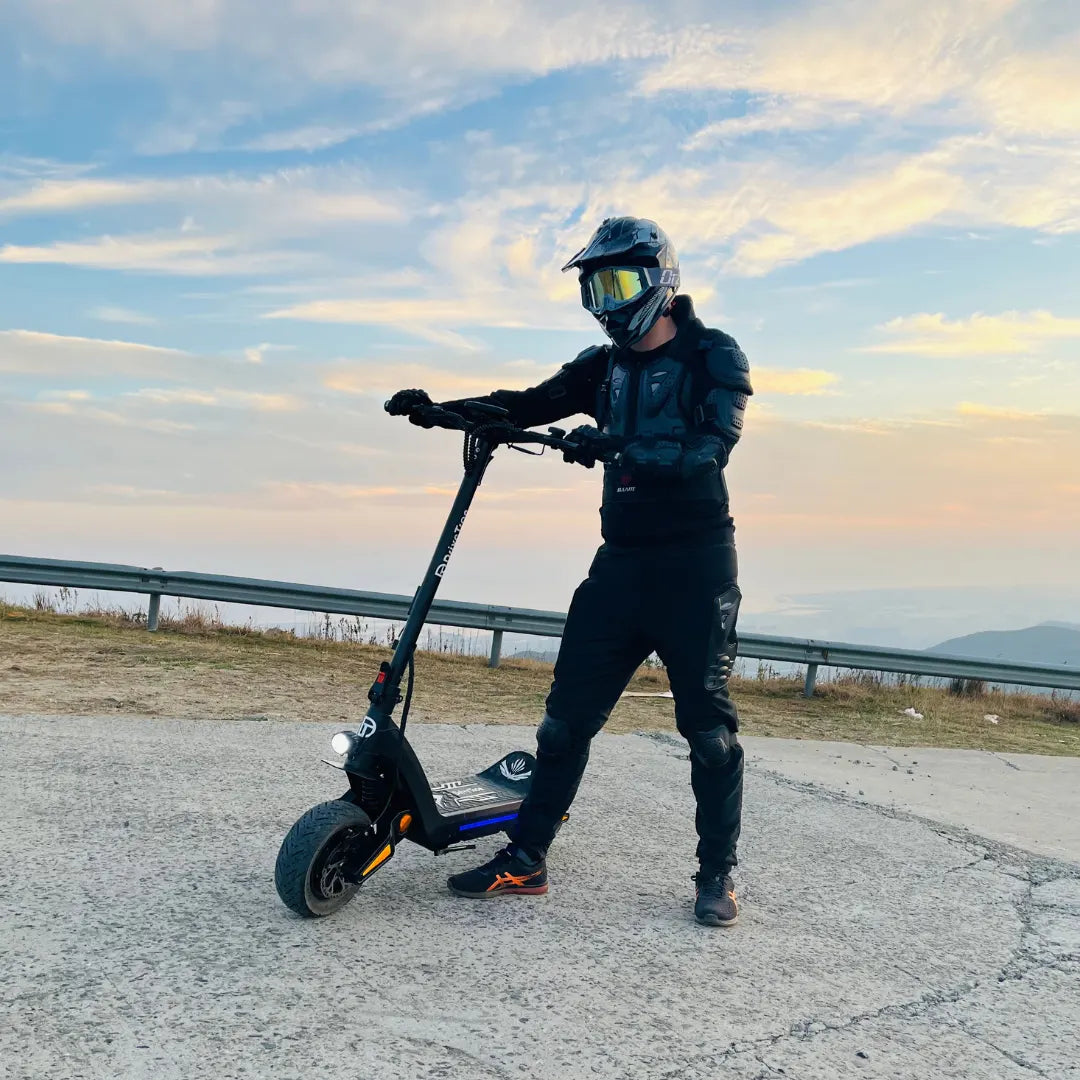
When winter arrives, many scooter users wonder: Can I keep riding in the cold? At GTXR , we believe electric mobility doesn't have to stop when the temperature drops. With the right practices, a scooter can remain an effective means of transportation—even in winter.
Here's a comprehensive guide on how cold weather affects your scooter, which GTXR models are best suited, and tips for riding safely during the colder months.
The effects of cold on an electric scooter
Scooters are susceptible to extreme weather conditions. Here are the main impacts of cold weather:
1. Decreased battery performance
Lithium-ion batteries lose efficiency at low temperatures. Below 10°C, battery life can drop by 15 to 40%. Cold weather slows down internal chemical reactions, affecting charging and usage time.
2. Less grip on the ground
Cold roads are more slippery, especially when there is ice or snow. The rubber in your tires becomes harder, reducing traction. This makes turning and braking more dangerous if you're not careful.
3. Brake and frame responsiveness
Metal can contract in the cold, which slightly affects braking mechanics or frame flexibility. High-end GTXR models are designed to limit these effects.
4. Risks related to humidity
Snow, salt, and water can penetrate components if the scooter is not properly protected. This can cause corrosion or short circuits.
Tips for using your GTXR in winter
Here are the precautions to take to drive safely:
Heat the battery inside
Charge and store your scooter in a warm place before going out. A cold battery will have difficulty delivering its full capacity.
Reduce speed and accelerate gently
Cold roads require extra caution. Drive more slowly, brake gently, and avoid sharp turns.
Use suitable tires
Inflatable tires (pneumatic) have better grip in winter than solid tires. Models like the GTXR DT06 or GTXR S10 are particularly suitable for uneven or wet surfaces.
Make yourself visible
The days are shorter. Wear bright or reflective clothing, use front and rear lights , and consider a helmet light.
Dry your scooter after each ride
Wipe down the scooter after use, especially the hinged areas, the screen, and under the deck. Moisture is the enemy of electronics.
Check the brakes regularly
Their effectiveness may decrease in cold weather. Test them before each outing.
The best GTXR models for winter
Not all models are equal in winter. Here are the ones that perform best:
• GTXR DT06 : all-terrain tires, water protection, reliable range
• GTXR S10 : inflatable tires, dual braking, wide and stable deck
• GTXR G50 (with Happyrun): wide tires and robust frame for difficult terrain
They combine safety, comfort and performance even in demanding conditions.
Up to what temperature can you drive?
Most GTXR scooters can be used down to -5°C. However, frequent riding below freezing is not recommended because:
• This may damage the battery in the long run
• Brakes and tires may lose effectiveness
• This may void some manufacturer warranties.
In very cold weather, opt for public transport and store your scooter in a dry place.
Conclusion
Yes, electric scooters can be used in winter—as long as you're prepared. With the right habits and a GTXR model designed to withstand the elements, you can keep riding even in the snow.
Discover our winter-ready models at gtxrstore.com and stay mobile all year round.

